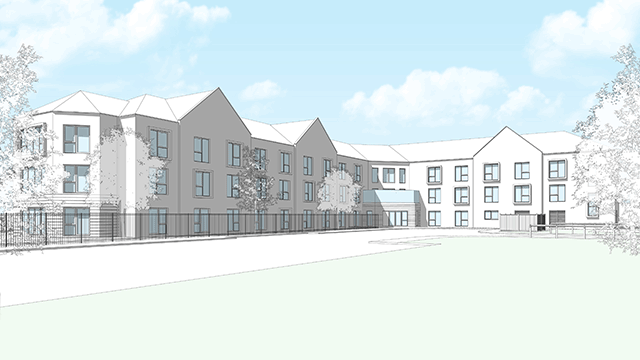As Marcus Geddes set out a fresh business plan for the Westminster Property Association, there was a word he hoped to avoid. In an early draft, the new chair of the organisation – which represents more than 240 real estate businesses active in the borough – saw a little too much talk of “recovery” after the events of the Covid-19 pandemic.
“I was keen to move beyond that,” says Geddes, whose day job is managing director for central London at Landsec. “I wanted us to be slightly more optimistic about how we can [not only] recapture the glories of five or six years ago in the West End, but recognise where we are and the impact the past three years has had, and then build on the new outlook.”
Geddes has reason to think a corner has been turned for the economy and for real estate. As he speaks with EG, Deloitte’s quarterly survey of finance directors has found respondents surprisingly upbeat, and CBRE’s monthly index has shown the first increase in UK real estate capital values since June 2022. “It never ceases to amaze me how markets move faster than anyone ever predicts – both ways,” Geddes says.
Ahead of taking the WPA chair from Derwent’s Paul Williams for a two-year term, Geddes talked EG through the four “pillars” around which he will focus his time in the top seat.
Resilience
The to-do list starts with what Geddes calls the “economic, cultural and social resilience of the West End”.
“That involves working with the city council, looking at footfall, how we can drive the hubs and the high streets, the ambitious public realms that really create magnetism for the West End,” he says.
“The benefits that property owners, investors and developers can bring to economic growth, prosperity, jobs and, therefore, opportunities for the borough are where we want to focus now.”
Places and spaces are being adapted to a new, post-pandemic normal – and it isn’t all bad news, adds Geddes. “Fridays were never particularly busy in the office but they are certainly quieter now,” he says. “But what we are seeing in Landsec across our leisure and retailing environments is Saturdays and Sundays are busier than they were in 2019. You have got shifting sands of visitation. We need to operate and plan our places and our spaces to adapt to that.”
Sustainability
Five months on from the launch of Westminster’s first Sustainable City Charter – a joint initiative between the council and the WPA – Geddes emphasises that the issue will remain “an absolute priority for Landsec, for our civic leaders at the council and the wider community”.
“It’s no small challenge decarbonising the built environment, but as one of the main contributors, we absolutely have a part to play and different organisations will be at different stages on that journey,” he adds.
“It’s about working together with the medium of the WPA, to convene, to share best practice, to help everyone get as far on that journey as quickly as they can, because not only is it a priority for the groups I mentioned, but ultimately our customer base is recognising this as a very important part of their own ESG priorities.”
The charter, which includes practical recommendations such as carrying out energy use assessments and adopting green leases at renewal, is “a great platform to build on”, Geddes says, although he reiterates the WPA’s past warning not to let the approach “retrofit first” become “retrofit only”. “With sustainability, there is the risk of binary arguments,” he adds. “This is a nuanced debate.”
Public-private collaboration
Geddes says the WPA’s experience of working with a Labour-led administration in the borough for the first time has been effective and collaborative.
He says: “What they did in the aftermath [of the party’s historic win] was adapt and take their role incredibly seriously, incredibly quickly, and listen very well to where we were coming from and what we have to say.
“The imperative of collaboration and the opportunity to work well with our civic partners is huge,” Geddes adds, noting this was “never more so than during the pandemic” when real estate and the local authority came together to demonstrate “fantastic support” for each other.
“That involves new relationships, it involves different administrations, none of which changes the importance of getting them right,” he says. “Now we are working as business as usual with Westminster City Council as the new administration clocks up its first year in office.”
Equality and inclusion
Finally, Geddes wants the WPA and its members to focus on bringing new voices and views into the real estate industry to shape the sector and its work.
“We are all getting to an age where we are thinking about the next generation being far more relevant and far more important,” he says. “How can the organisation, the industry, individual members – and I put us absolutely in the middle of this – help promote our sector and the opportunities that flow from it, whether they be jobs or economic prosperity and benefits to the rest of the community in which we operate in?
“There’s nothing more rewarding than seeing someone who didn’t really know what the real estate sector is or does, scratch their head and then you see a light bulb and something comes on. You think: maybe we’ve triggered something.”
To send feedback, e-mail tim.burke@eg.co.uk or tweet @_tim_burke or @EGPropertyNews
Image courtesy of PR
See which agents are doing the most deals in the West End >>











